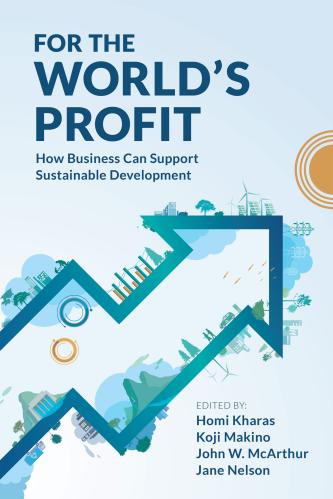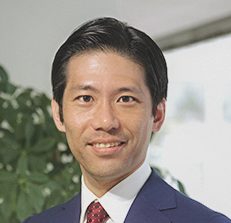As countries navigate the complex landscape of sustainable development, Japan’s recent experience offers insights into how public awareness, government policy, and corporate engagement can better align to advance the Sustainable Development Goals (SDGs). Once a relative latecomer in integrating the SDGs into societal and institutional frameworks, Japan has expanded engagement and adoption of sustainability principles across sectors. Drawing on a recent chapter in the book “For the World’s Profit,” this blog examines the multifaceted approach, including bottom-up initiatives, targeted incentives for businesses, and top-down regulatory reforms to explore how these strategies may inform broader global conversations on sustainability implementation.
Public awareness of the SDGs has grown in Japan over the past several years with a high degree of incorporation into society. As of 2023, 91.6 % of Japanese respondents reported being aware of the SDGs, which exceeds the average level of awareness recorded across 17 other surveyed countries (Figure 1).1 While Japan initially lagged behind in integrating the SDGs into its societal and institutional frameworks following their adoption in 2015, recent years have seen a marked increase in public engagement. This shift raises important questions about key levers driving Japan’s accelerated adoption of sustainability principles.
Figure 1. Growth of SDG awareness in Japan and across 17 countries
Source: Survey by Dentsu Inc. and GlobeScan
The national government has played an important role in encouraging shifts in both public and business sector engagement with the SDGs. To facilitate these changes, the government has implemented a range of policies and initiatives characterized by both bottom-up and top-down approaches.
One key bottom-up strategy includes raising public awareness of the SDGs through mass media and formal education. The revised edition of Japan’s SDGs Implementation Guiding Principles, issued in 2019, emphasized the importance of awareness-raising campaigns. Accordingly, SDG-related characters and logos have appeared frequently across television, newspapers, and advertisements. According to a survey by Dentsu Inc., 63.5 % of Japanese respondents became familiar with the SDGs through television. The government has also integrated SDG-related content in schools by establishing education guidelines, including education for sustainable development (ESD) for primary schools, junior high schools, and high schools, in 2020, 2021, and 2022, respectively. As a result, SDGs are regularly incorporated into classroom instructions and school events, which contribute to broader societal awareness, including to parents through family conversations.
As public awareness of the SDGs increased, consumer-facing businesses began aligning more closely with sustainability objectives to meet the evolving expectations of customers and employees. The government has issued various guidance materials on SDG implementation and the environmental, social, and governance (ESG) principles for businesses to support these shifts. Examples include SDGs guides published by the Ministry of the Environment (2018), the Ministry of Economy, Industry and Trade (2019), and the SDG guide tailored for small and medium-sized enterprises (SMEs) issued by the Small and Medium Enterprise Agency (2021). In addition, the government has promoted the sharing of best practices through award programs and online platforms, such as the Japan SDGs Award launched in 2017 by the SDGs promotion headquarters.
Meanwhile, local governments provided direct incentives to encourage corporate engagement with the SDGs, especially by targeting small and medium-sized enterprises. These measures include subsidies and preferential treatment in public works and procurement bidding for businesses with a proven track record of activities related to the SDGs. The 2020 edition of the Town, People, Job Creation Comprehensive Strategy introduced schemes such as facilitating the registration or certification for local companies to address the SDGs. Additionally, local financial institutions have been encouraged to provide SDG- or ESG-related financing for regional revitalization. In some cases, participation in local SDGs registration or certification schemes is a prerequisite for local companies to access these incentives.
Top-down policy reforms have also played a significant role in advancing the SDGs within the business sector. Notable examples include revisions of the Stewardship Code and the Corporate Governance Code in Japan, in 2017/2020 and 2021, respectively. The updated Stewardship Code outlines principles for signatory institutional investors to fulfill their stewardship responsibilities, including the integration of ESG factors. Investors are required to disclose how they integrate sustainability considerations into their investment strategies or provide reasons for not doing so. Similarly, revisions to the Corporate Governance Code establish expectations for companies listed on the Tokyo Stock Exchange to realize sustainability-conscious corporate governance by developing policies to address sustainability issues and report on their efforts.
Taken together, these coordinated efforts—including top-down government policies, corporate engagement, and public awareness campaigns—have contributed to widespread recognition of the SDGs. This whole-of-society approach appears to foster mutually reinforcing dynamics of sustainability practices across various sectors. However, at the global level, growing political movements in some countries have challenged some elements of the SDG agenda, particularly in areas such as diversity, equity and inclusion, environmental conservation, and climate actions. While similar trends have not been prominent in Japan to date, ongoing attention to these global shifts remains important.
-
Acknowledgements and disclosures
The Brookings Institution is a nonprofit organization based in Washington, D.C. Our mission is to conduct in-depth, nonpartisan research to improve policy and governance at local, national, and global levels. The conclusions and recommendations of any Brookings publication are solely those of its author(s), and do not reflect the views or policies of the Institution, its management, its other scholars, or the funders mentioned below.
The JICA-Ogata Sadako Research Institute for Peace and Development is a donor to the Brookings Institution. Brookings recognizes that the value it provides is in the absolute commitment to quality, independence, and impact. The findings, interpretations, and conclusions in this report are not influenced by any donation.
-
Footnotes
- Countries include Australia, Brazil, Canada, China, France, Germany, India, Indonesia, Kenya, Mexico, Nigeria, Peru, South Africa, Spain, Türkiye, the United Kingdom, and the United States.
The Brookings Institution is committed to quality, independence, and impact.
We are supported by a diverse array of funders. In line with our values and policies, each Brookings publication represents the sole views of its author(s).








Commentary
Aligning policy, business, and society: Lessons from Japan’s approach to adopt and advance the SDGs
April 1, 2025